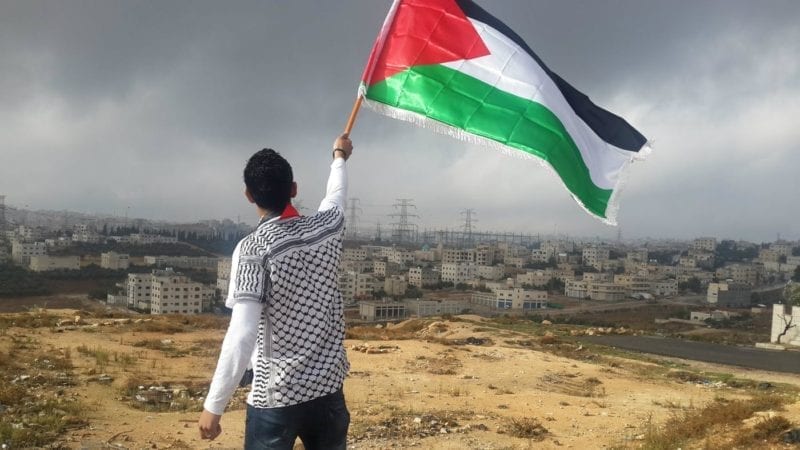Doha Forum event looks into the impact of Arab states’ normalisation with the occupying state of Israel.
Experts from across the world gathered during the most recent Doha Forum event to explore and discuss the effect of the recent UAE, Bahrain and Sudan normalisation deals with Israel on Palestinians and their impact on the MENA region.
Entitled “Palestine/Israel and the Middle East Region: Will the Combination of Normalisation with Occupation Nurture Peace or Escalate Conflict?”, the event was held virtually and attended by several experts.
The session, moderated by Daniel Levy, president of the US/Middle East Project and a former Israeli government advisor, began by remembering the late secretary-general of the Palestine Liberation Organisation (PLO), Saeb Erakat who was known for his decades-long role as a chief negotiator.
“Saeb was a committed peace maker beyond the call of duty,” said Levy in his opening remarks.
The event featured five speakers: Dr. Hanan Ashrawi, prominent Palestinian activist and leader; Dr. Ibrahim Fraihat, associate professor of international conflict resolution at the Doha Institute for Graduate Studies; Dr. Rami Khouri, professor of journalism and senior fellow at the Harvard Kennedy School; and Sarah Whitson, executive director of DAWN MENA and former director at the Human Rights Watch (HRW); and Ilan Goldenberg, Middle East Security Director at CNAS.
Read also: 90% of Qatar, Kuwait populations reject Israeli normalisation: survey
When the governments of the UAE, Bahrain and then later Sudan announced their normalisation with Israel, response was divided; some people praised them as heroes who saved Palestinian land from further annexation, while the majority of the Arab street saw it as yet another betrayal to the quest for Palestinian independence and a just and lasting peace in the Middle East.
Commenting on Israel’s annexation plans, the first speaker of the forum, Dr. Ashrawi, said that normalisation “was a result of a very manipulative, self-serving agenda” by the Trump Administration to deliver the region to Israel and further empower the US’ life-long ally.
“I do not underestimate the implications of such agreements, but we all know that these agreements are neither peace agreements, nor do they emerge from an organic reality and need, nor do they comply with international law, nor do they serve the cause of Palestinian rights,” said Dr. Ashrawi.
She added that, on the contrary, the so-called peace agreement will further introduce regional instability.
Read also: Qatar dismisses normalisation claims, says its position remains the same
US foreign policy was also a key topic of discussion at the Doha Forum webinar, with experts analysing the significance of the decisions made by the States and their implications on the MENA region.
Addressing this factor of the normalisation deals, Dr. Rami Khouri explained the reason why the illegal occupation of Palestine is at the core of regional instability.
“The Palestinian-Israeli conflict is the oldest and most radicalising political force in the region,” said Dr. Khouri. “It’s an issue that touches the whole region.”
Following the occupation of Palestine, foreign military intervention has expanded in the region and brought with it authoritarian, autocratic rulers that have added to regional discontent.
“There’s a decade now of uprisings from 2010-to-2020, of almost non-stop, major uprisings across the region of trying to overthrow these systems to come up with something better,” he said.
Dr. Khouri said that with all the previous events that have impacted the MENA region, there is now a case of ‘desovereignisation’, where normalising countries have shown that they lack sovereignty and, as a result, have extended a hand to Israel.
“Many countries that are wealthy, like the UAE or the Saudis can only spend their money to buy military equipment if Israel says okay. They don’t have sovereign control over their funds, their lands or their people” Dr. Khouri added.
Read also: Qatar urges end to ‘global inaction’ towards Palestinian cause
Commenting on the US policy’s role in the Abraham Accords, Sarah Whitson said that the “peace” agreement was never about the Palestinians and that it was in fact an expansion of Israeli control over the region.
“The Abraham Accords are not a peace deal, there is no peace, there is no war, there is a permanent military occupation, apartheid, land theft and violence,” said Whitson.
Echoing Dr. Ashrawi’s comments, Whitson said that the peace deals that the US has used under the facade of fighting violence do nothing to address the issues Palestinians have long struggled with as they are an afterthought despite them being the main victims of the illegal occupation.
Dr. Whitson added that the deals are about the regional access of control, that is beyond the US fighting Iran and the so-called Shia-Sunni wars.
“With the UAE-Bahrain deals, Israel has openly allied itself with the autocratic dictatorships of the region that don’t even have pretend democracies,” she said.
The use of annexation suspension as an excuse of legitimising the peace deals was nothing more than a “face-saving measure” Whitson added.
“This was not a country-to-country deal…this was a deal between one man, Mohammed bin Zayed, and the government of Israel,” said Whitson.
Follow Doha News on Twitter, Instagram, Facebook and Youtube







